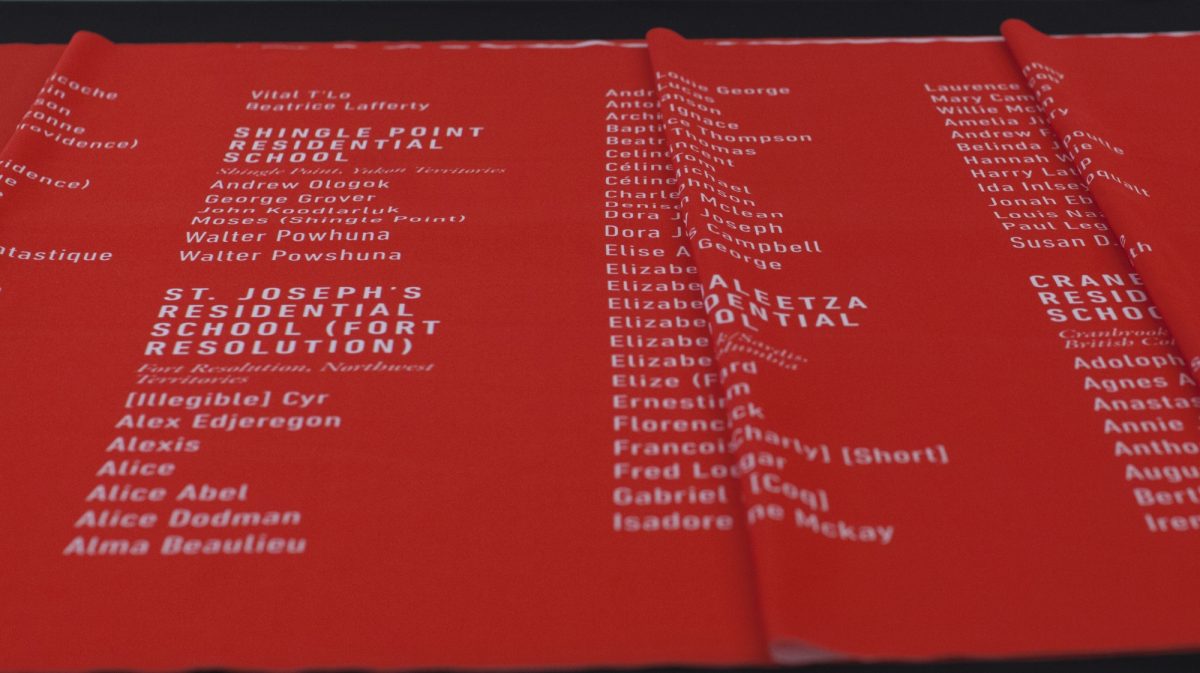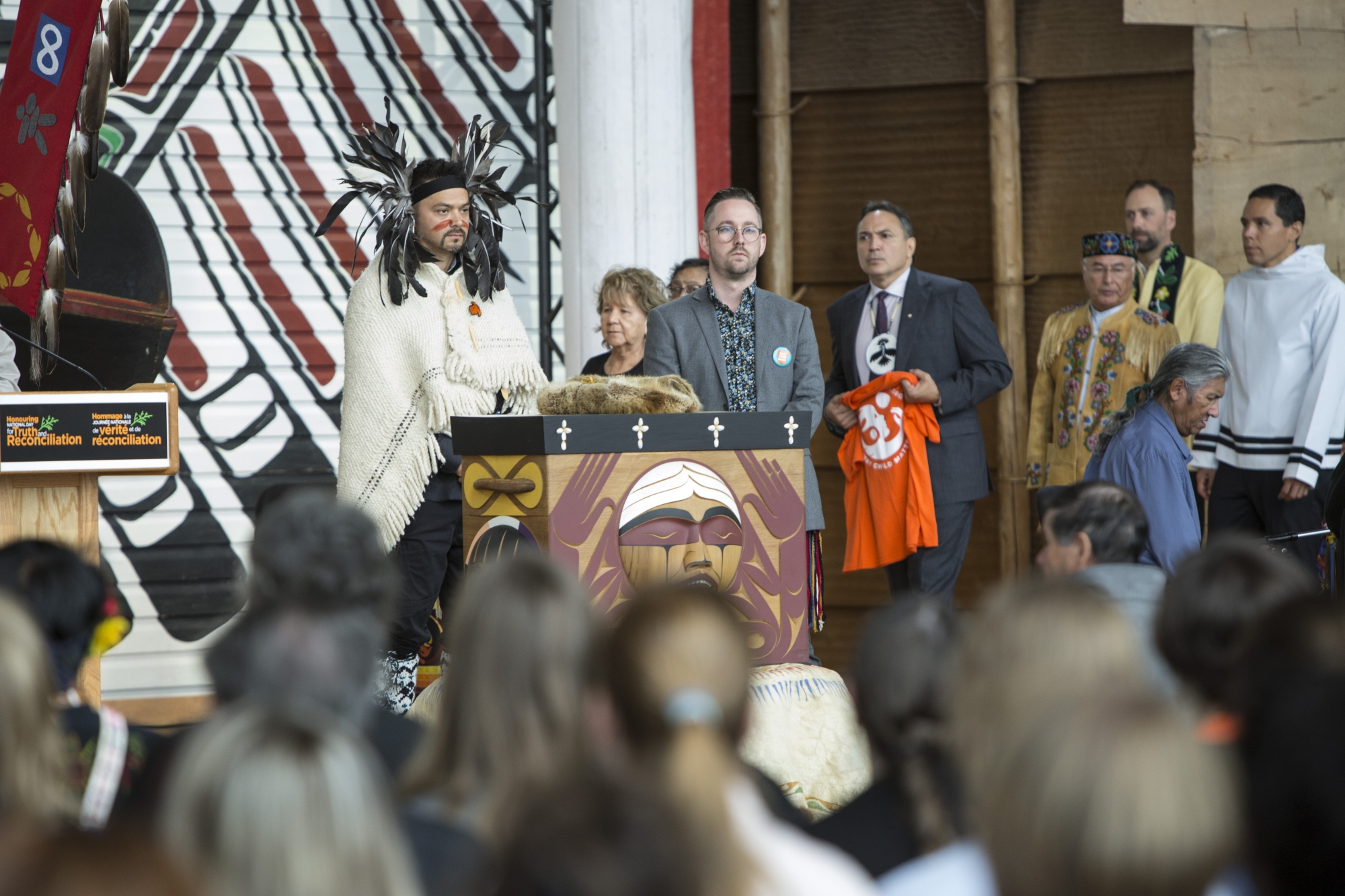
National Memorial Registry cloth with names of Indigenous children
4,037 Indigenous children listed in Memorial Register
On September 30, 2019, the National Centre for Truth and Reconciliation (NCTR) in partnership with APTN hosted a ceremony in Ottawa, in the Grand Hall at the Canadian Museum of History, for Honouring National Day for Truth and Reconciliation. Funded by Canadian Heritage through APTN, a cloth displaying the names of 2,800 Residential School students who never made it home was displayed during the deeply moving ceremony, honouring them and returning their names to their communities so that families can begin healing.
“This is a way for us to literally lift up these children, to hold them up,” said Ry Moran, director of the NCTR, who participated in the special ceremony.

Ceremony for National Memorial Registry
The National Centre for Truth and Reconciliation (NCTR) was created to preserve the memory of Canada’s Residential School system and legacy. On the campus of the University of Manitoba, the NCTR is the permanent home for all statements, documents, and other materials gathered by the Truth and Reconciliation Commission of Canada (TRC).
The NCTR ensures that: Survivors and their families have access to their own history; educators can share the Residential School history with new generations of students; researchers can delve more deeply into the Residential School experience; the public can access historical records and other materials to help foster reconciliation and healing; and the history and legacy of the Residential School system are never forgotten.
In 2018, the NCTR received funding from Crown-Indigenous Relations and Northern Affairs Canada (CIRNAC) to begin work to implement Call to Action 72, which calls for creation of a National Student Memorial Register to document the Indigenous children who passed in residential schools. This is an important step in remembering and honouring the children who never came home.
Children’s names, school and date of death (if available) are now publicly available through the National Student Memorial Register. Families and communities can access more information on each of the children through a request to the NCTR.
The effort to fully document the children that never returned home from the schools remains ongoing. The TRC identified 1,953 children, plus 477 students where additional investigation is required, and an additional 1,242 students known to have passed away but whose names are not yet known. The NCTR has conducted further review of the records and has added an additional 365 students to the memorial. In total there are presently 4,037 children within the national student memorial register.
Additional names of children waiting to be found are not included within this register. There remains an extensive amount of work to be done to find all the children that never returned home and their burial sites. Statements given by Survivors, intergenerational survivors, families and community members also formed an essential part of this research. Ongoing information from Survivors, families and communities presents an important opportunity to ensure that no child is forgotten. Research efforts by the NCTR are ongoing, and this number will increase over time.
NCTR’s task has been to bring all of this information together in a robust data system, to make it accessible and to properly honour and commemorate the children contained within the register. To ensure the NCTR was undertaking this work in a good way, they engaged communities across the country specifically seeking advice on how to properly honour these children.
The NCTR worked closely with its Survivor Circle in the development of this Register, and ceremonies with Elders were conducted throughout the process. Through these sessions, the NCTR heard that it was important that these children’s names be known so that they can be honoured, remembered, celebrated and commemorated.
The bringing together of these names represents a significant step in the country’s journey of truth and Reconciliation. It marks the first time the information is viewable in its entirety.
For more information, visit the NCTR online.






